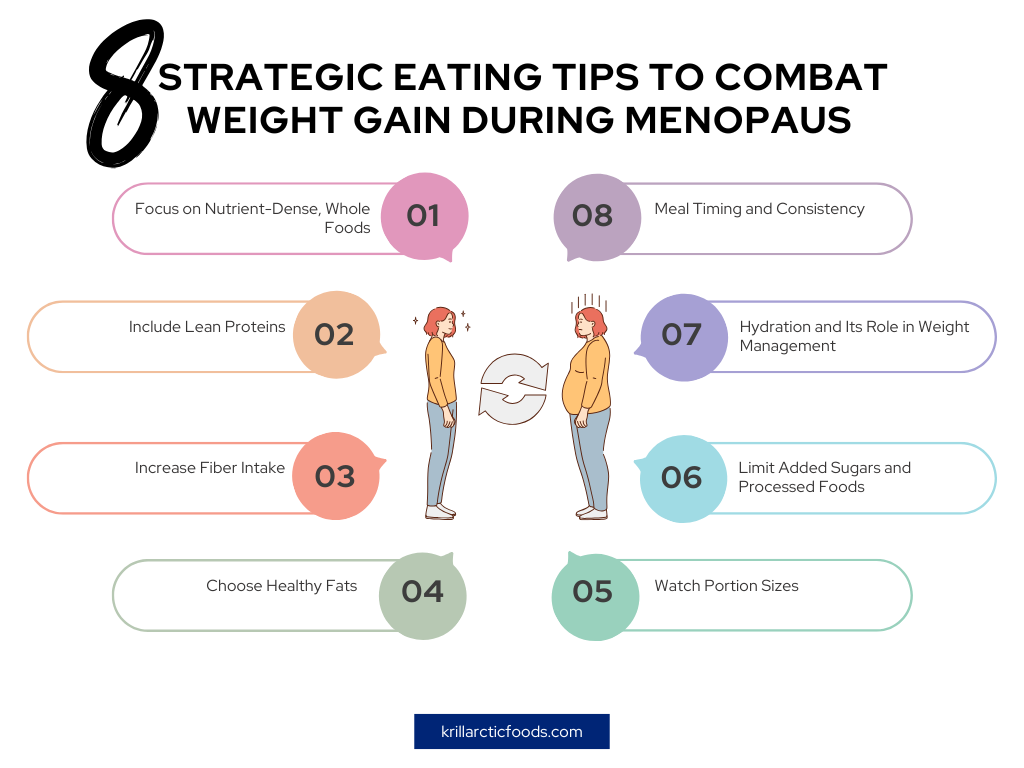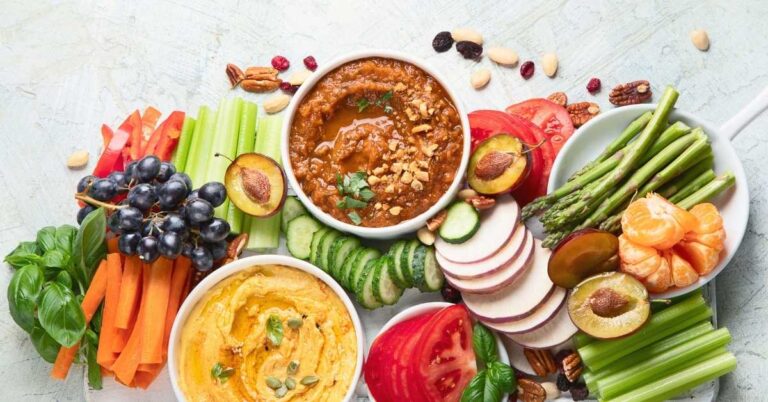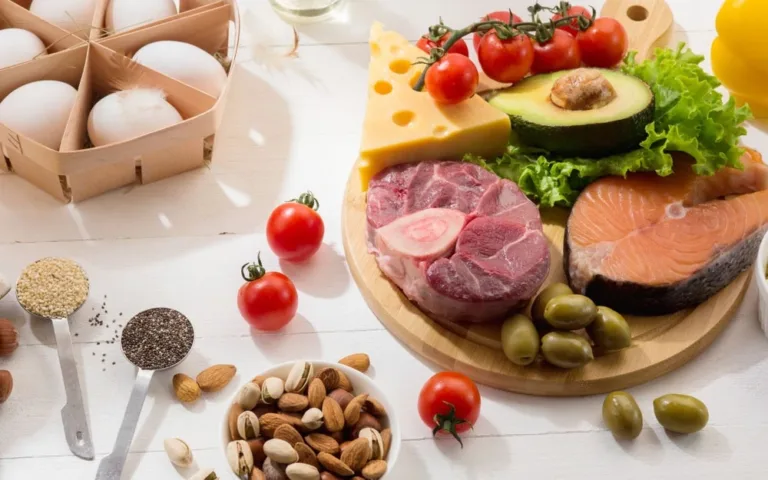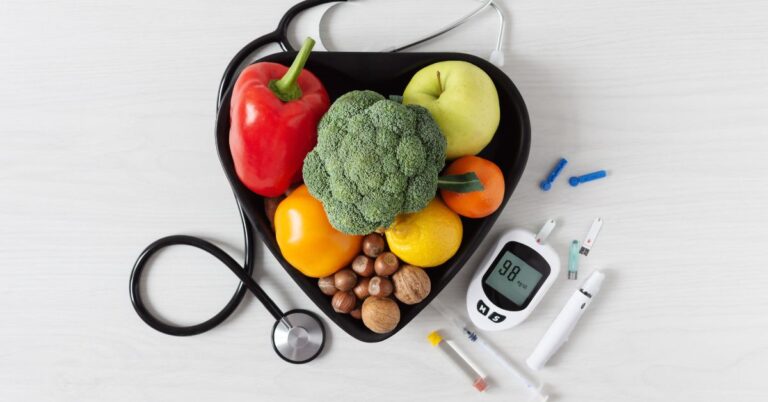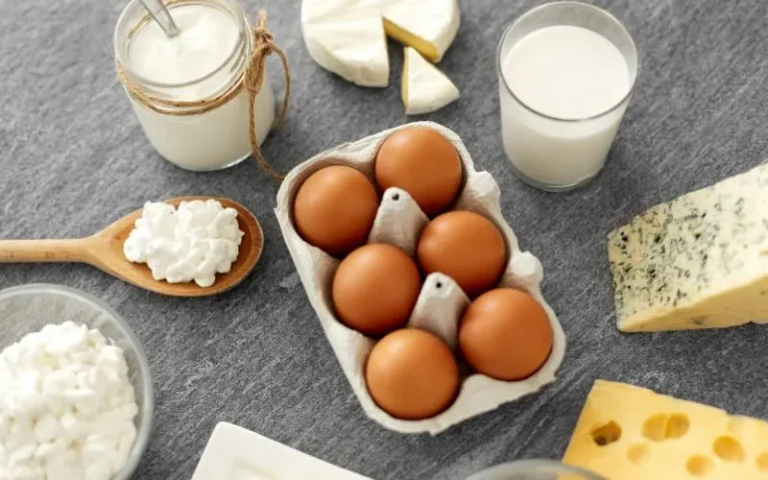As you enter menopause, the changes in your body can make it more challenging to maintain your usual weight and energy levels. Hormonal shifts often lead to weight gain, particularly around the abdomen, and can make traditional diet and exercise routines less effective. This is where a tailored diet plan comes in—specifically designed to address the unique metabolic changes during menopause.
This 5-day menopause weight loss diet plan provides nutrient-dense meals that support weight loss and help balance hormones. Key ingredients like krill meat, rich in omega-3s, are included to promote heart health, reduce inflammation, and ease common menopausal symptoms.
With a balanced approach to eating, this plan helps you feel more energized while also tackling the weight gain challenges that come with menopause.
Let’s get started on this journey to feeling healthier and more in control during menopause.
What Is The Correlation Between Menopause and Gaining Weight?
Unexpected weight gain, particularly around the abdomen, isn’t a result of lifestyle alone but is driven by multiple physiological changes. It involves hormonal changes, muscle loss, increased appetite, and lifestyle factors like stress and sleep quality. Recognizing these influences allows for developing strategies tailored to menopause, including a balanced diet, strength training, and stress management techniques to maintain a healthy weight.
By addressing these key factors, it’s possible to manage and even prevent some of the weight gain commonly associated with menopause.
Hormonal Shifts and Fat Distribution
As estrogen levels decline during menopause, the body experiences a shift in how it stores fat. Pre-menopause, fat is often stored around the hips and thighs. However, with reduced estrogen, fat is more likely to accumulate in the abdomen. This shift is not just cosmetic; abdominal fat is linked to increased risks of heart disease and type 2 diabetes.
Slowed Metabolism and Muscle Loss
Muscle mass naturally declines with age, and this process accelerates during menopause. Muscle is metabolically active, meaning it burns more calories at rest compared to fat. As muscle mass decreases, so does the body’s ability to burn calories, even at rest. This decline in metabolism makes weight gain more likely unless there’s an adjustment in diet and physical activity.
Increased Appetite and Cravings
Estrogen also regulates hormones responsible for hunger and satiety. As its levels drop, women may experience increased appetite or cravings, particularly for high-sugar or high-fat foods. Without careful management, these cravings can lead to overeating and subsequent weight gain.
Stress and Sleep Disruptions
Menopause can cause sleep disruptions due to hot flashes or night sweats, leading to poor-quality rest. Lack of sleep raises cortisol levels, the hormone associated with stress. Elevated cortisol levels promote fat storage, especially around the belly. This creates a vicious cycle of anxiety, poor sleep, and weight gain.
The Menopause Diet: A 5-Day Plan with Krill Meat Recipes (Full Daily Meal Plan)
Navigating menopause can be challenging, but the right nutrition can help you feel more energized, balanced, and in control. Let’s create a menopause diet 5 day plan to lose weight.
This diet plan during menopause focuses on simple, nutritious meals featuring krill meat, which is packed with omega-3 fatty acids, protein, and antioxidants. These meals are designed to nourish your body, reduce inflammation, and support hormone balance.
Day 1
Breakfast: Krill Meat and Veggie Omelette
Start your day with a protein-packed omelette. Whisk together eggs with chopped bell peppers, spinach, and sautéed krill meat. Serve with a side of whole-grain toast. This meal is rich in omega-3s, which can help with mood swings and support heart health.
Lunch: Krill Meat Salad with Avocado and Mixed Greens
A light, refreshing salad that keeps you full and satisfied. Combine mixed greens, krill meat, avocado, cherry tomatoes, and cucumbers. Top with simple olive oil and lemon vinaigrette. The healthy fats in avocado and krill meat help reduce inflammation and improve skin health.
Snack: Greek Yogurt with Flaxseed
Enjoy a bowl of plain Greek yogurt sprinkled with flaxseeds for added fiber and omega-3s. This snack supports digestion and hormone balance.
Dinner: Krill-Stuffed Bell Peppers
For dinner, try bell peppers stuffed with a flavorful mixture of krill meat, quinoa, and chopped vegetables. Bake until tender and enjoy a fiber-rich, nutrient-dense meal that supports healthy digestion and keeps you full.
Day 2
Breakfast: Krill Meat and Avocado Toast
Spread mashed avocado on whole-grain toast and top with sautéed krill meat and a sprinkle of chili flakes. This quick and easy breakfast provides a perfect balance of healthy fats, fiber, and protein to keep your energy levels steady.
Lunch: Krill Meat and Chickpea Salad
Mix krill meat with cooked chickpeas, cherry tomatoes, red onion, and cucumber. Dress with olive oil, lemon, and fresh herbs for a refreshing, protein-packed meal that supports muscle health and provides lasting energy.
Snack: Almonds and Dark Chocolate
A handful of almonds paired with a few squares of dark chocolate offers a satisfying snack rich in healthy fats and magnesium, which can help ease stress and promote relaxation.
Dinner: Krill Meat and Sweet Potato Skillet
Sauté krill meat with sweet potatoes, onions, and a sprinkle of rosemary for a warm, comforting meal. Sweet potatoes provide complex carbohydrates that help regulate blood sugar, a common issue during menopause.
Day 3
Breakfast: Krill Meat and Spinach Smoothie
Blend together a handful of spinach, a banana, a scoop of krill meat, almond milk, and chia seeds. This smoothie is loaded with fiber, protein, and omega-3s, providing a refreshing start to your day while helping to reduce inflammation.
Lunch: Krill Meat Lettuce Wraps
Use crisp lettuce leaves to wrap up a flavorful mixture of krill meat, shredded carrots, cucumbers, and hummus. These wraps are light, crunchy, and perfect for a quick, satisfying lunch.
Snack: Carrot Sticks with Guacamole
Enjoy some crunchy carrot sticks dipped in homemade salsa for a snack rich in fiber and healthy fats. The avocado supports skin health, and the carrots are packed with antioxidants.
Dinner: Krill Meat and Vegetable Stir-Fry
Sauté krill meat with a variety of vegetables like broccoli, snap peas, and bell peppers. Season with soy sauce, garlic, and a splash of sesame oil for a flavorful, nutrient-dense dinner that promotes heart and brain health.
Day 4
Breakfast: Krill Meat Scramble with Mushrooms and Tomatoes
Scramble eggs with krill meat, sautéed mushrooms, and cherry tomatoes. Serve with a side of whole-grain toast for a protein-packed meal that keeps you full and focused throughout the morning.
Lunch: Krill Meat and Quinoa Power Bowl
Build a nourishing power bowl with cooked quinoa, krill meat, roasted sweet potatoes, and leafy greens. Drizzle with olive oil and lemon juice for a satisfying, well-rounded meal that supports digestion and hormone balance.
Snack: Apple Slices with Almond Butter
Sliced apples with a dollop of almond butter offer a crunchy, satisfying snack rich in fiber and healthy fats to keep your blood sugar stable.
Dinner: Krill Meat and Lentil Soup
Enjoy a hearty bowl of lentil soup with krill meat, garlic, onions, and carrots. Lentils are high in fiber and iron, helping to combat menopause-related fatigue, while krill meat adds a healthy dose of protein and omega-3s.
Day 5
Breakfast: Krill Meat and Avocado Breakfast Bowl
Layer sautéed krill meat with a poached egg, sliced avocado, and a handful of spinach in a bowl. This breakfast is rich in healthy fats, protein, and fiber, providing sustained energy and helping to reduce inflammation.
Lunch: Krill Meat Tacos
Use soft whole-grain tortillas to wrap up krill meat, shredded cabbage, avocado, and a squeeze of lime for a delicious, light lunch. The combination of protein and healthy fats helps regulate mood and energy.
Snack: Mixed Nuts and Seeds
A small handful of mixed nuts and seeds, like walnuts, pumpkin seeds, and sunflower seeds, gives you a dose of healthy fats and essential minerals like magnesium, which can help ease menopause symptoms.
Dinner: Krill Meat and Zucchini Noodles
Use a spiralizer to make zucchini noodles and toss them with krill meat, olive oil, and garlic. This low-carb dinner is light yet satisfying, perfect for supporting weight management during menopause.
Strategic Eating to Combat Menopause Weight Gain
Managing weight during menopause requires a thoughtful approach to nutrition, focusing on foods that support hormonal balance, promote satiety, and boost metabolism. Strategic eating becomes essential in combating the natural tendency toward weight gain during this stage of life.
Focus on Nutrient-Dense, Whole Foods
One of the best ways to manage weight is by prioritizing nutrient-dense foods. These foods provide essential vitamins and minerals without excess calories. Whole grains, fruits, vegetables, and lean proteins are examples of nutrient-dense options that fuel your body without adding unnecessary fat. Incorporating leafy greens, berries, and fatty fish rich in omega-3s helps nourish the body while supporting heart and brain health.
Include Lean Proteins
Protein is vital for maintaining muscle mass, which tends to decrease during menopause. Eating lean protein sources, such as chicken, turkey, fish, beans, and tofu, helps preserve muscle and boost metabolism. Protein also helps curb hunger and cravings by promoting a feeling of fullness. Including protein in every meal is a key strategy for managing appetite and maintaining a healthy weight.
Increase Fiber Intake
High-fiber foods like vegetables, legumes, and whole grains support digestion and help regulate blood sugar levels. Fiber also promotes a feeling of fullness, reducing the urge to snack between meals. By keeping your digestive system running smoothly, fiber can aid in weight management and reduce bloating, a common complaint during menopause.
Choose Healthy Fats
Healthy fats, such as avocados, olive oil, and nuts, are essential for hormonal balance. These fats help regulate appetite, reduce inflammation, and support heart health, which is particularly important during menopause. Unlike saturated fats, which can contribute to weight gain and increase cholesterol levels, healthy fats provide lasting energy and are an integral part of a balanced diet.
Watch Portion Sizes
With a slower metabolism, controlling portion sizes becomes more important. Even healthy foods can contribute to weight gain if eaten in excess. Using smaller plates, mindful eating, and paying attention to hunger cues can help prevent overeating. Instead of restricting foods, focus on portion control to maintain a balanced approach to eating.
Limit Added Sugars and Processed Foods
Sugary snacks, processed foods, and refined carbohydrates can spike blood sugar levels and lead to increased fat storage, especially around the abdomen. These foods offer little nutritional value and are linked to weight gain. By limiting sugar and processed food intake, you can stabilize your energy levels and prevent unwanted weight gain.
Hydration and Its Role in Weight Management
Staying well-hydrated is essential for overall health and can aid in weight loss. Often, feelings of hunger are actually signs of dehydration. Drinking water before meals can help control appetite, and choosing water-rich foods like fruits and vegetables can enhance hydration while providing vital nutrients.
Meal Timing and Consistency
Eating smaller, balanced meals throughout the day can help regulate metabolism and prevent overeating. Consistency is key—skipping meals can lead to larger portions later in the day, making it harder to manage weight. Establishing a regular meal schedule that includes breakfast, lunch, and dinner with healthy snacks in between ensures that your body gets the nutrients it needs without excess calories.
By focusing on these strategic eating habits, it becomes easier to manage weight during menopause while supporting overall health. These adjustments not only aid in weight loss but also promote energy, mental clarity, and a sense of well-being, helping to counteract the physical changes that come with menopause.
Conclusion: Embrace the Menopause Journey with Nutrient-Packed Meals
Navigating menopause can feel overwhelming, but the right diet can make a world of difference in how you feel and manage your weight. This 5-day diet plan to lose weight during menopause, rich in krill meat and other nutrient-dense foods, is designed to address the unique metabolic changes that occur during this life stage. By focusing on balanced, wholesome meals, you can nourish your body, support hormonal balance, and maintain a healthy weight.
Incorporating omega-3s, lean proteins, and healthy fats helps you stay energized, while fiber-rich foods promote digestion and satiety, keeping cravings at bay. Remember, this menopause weight loss meal plan is not just about losing weight but feeling your best during this transition. With thoughtful, mindful eating, you’ll not only support your physical health but also boost your overall well-being.
Take these delicious menopause diet plan recipes and customize them to your needs, empowering you to thrive during menopause and beyond.
Frequently Asked Questions
What Is The Menopause Diet?
The menopause diet is tailored to help women manage the physical and hormonal changes during menopause. It focuses on nutrient-dense foods, balanced meals, and specific nutrients that support hormonal balance, weight management, and overall health.
Why Is Weight Management Important During Menopause?
Hormonal changes during menopause can lead women to weight gain, especially around the abdomen. This can increase the risk of heart disease, diabetes, and other health issues. Managing weight through a balanced diet can help reduce these risks and promote overall well-being.
Can The Menopause Diet Help With Hot Flashes And Other Menopausal Symptoms?
A balanced diet that includes certain foods and nutrients can help alleviate the symptoms of menopause, such as hot flashes. For instance, soy products contain phytoestrogens that can help reduce these symptoms. Eating a balanced diet can also improve mood and energy levels, which may be affected during menopause.




